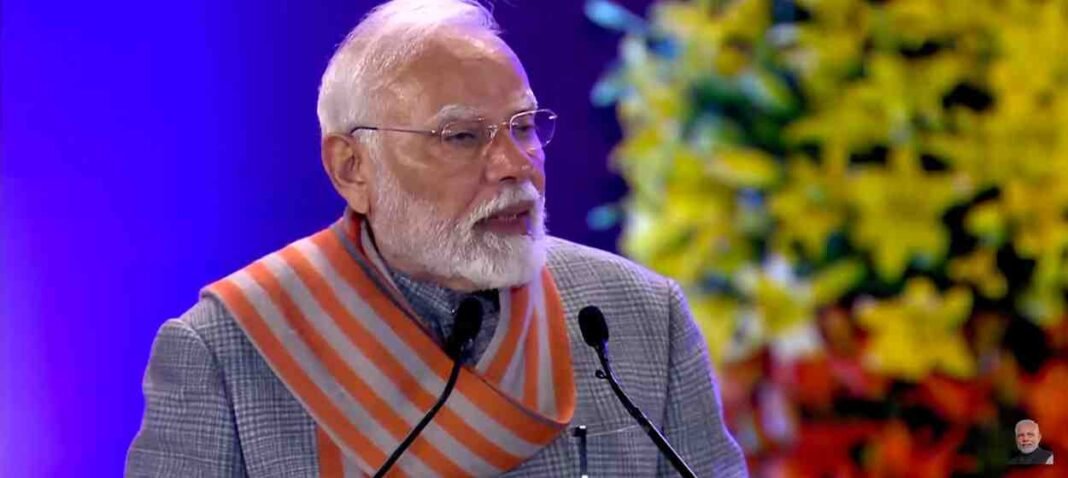Prime Minister Narendra Modi launched ‘Mission Mausam’ during the celebrations of the 150th Foundation Day of India Meteorological Department (IMD) today at Bharat Mandapam, to make India a ‘Weather-ready and Climate-smart’ nation.
The Prime Minister announced the mission as a symbol of India’s commitment to a sustainable future and readiness to face evolving challenges, ensuring the nation is well-prepared for all weather conditions and progresses toward becoming a climate-smart country.
The mission will be implemented in two phases over a period of five years. It aims to achieve its objectives by developing advanced weather surveillance technologies and systems, incorporating high-resolution atmospheric observations, next-generation radars and satellites, and utilizing high-performance computing systems.
It will also focus on enhancing the understanding of weather and climate processes while providing air quality data to support long-term strategies for weather management and intervention.
Along with the launch, Prime Minister Modi released a commemorative postage stamp and coin regarding the achievements of IMD. He also unveiled the IMD Vision-2047 document, outlining the future roadmap for the Indian Meteorological Department by 2047.
The document includes plans for advancing weather forecasting, enhancing weather management, and addressing climate change mitigation.
Reflecting on the past decade, Prime Minister Modi highlighted IMD’s significant achievements, including the expansion and modernization of Doppler Weather Radars, Automatic Weather Stations, Runway Weather Monitoring Systems, and District-wise Rainfall Monitoring Stations.
He also mentioned the establishment of two meteorological observatories in Antarctica, named Maitri and Bharati. Additionally, he noted the introduction of supercomputers Ark and Arunika, which have greatly enhanced IMD’s reliability and efficiency.
PM Modi praised IMD’s achievements in reaching out to India’s population, keeping them informed about current and upcoming weather conditions at any time. He emphasized the ‘Early Warning for All’ initiative, which covers 90 percent of the country’s population.
He also highlighted that the Meghdoot mobile app provides weather information in all local languages. He further noted that real-time updates enhance safety, strengthen sectors like agriculture and the blue economy, and help warn people about potential calamities in advance.
PM Modi also emphasized India’s rich history in meteorology, highlighting how traditional knowledge was documented, refined, and deeply studied in ancient texts such as the Vedas, Samhitas, and Surya Siddhanta.
He noted that Tamil Nadu’s Sangam literature and the folk literature of Ghagh Bhaddari in the north contain extensive insights into meteorology. Additionally, he mentioned significant works like Krishi Parashar and Brihat Samhita, which explored cloud formation, types, and the mathematical study of planetary positions.
In comparison to the cyclonic storm in Kandla, Kutch in 1998, and the super cyclone in Odisha in 1999, which resulted in thousands of deaths, the Prime Minister credited the successes of the Meteorological Department in minimizing or eliminating loss of life in the current scenario.
He further advised the IMD to focus on developing warning systems for natural disasters such as earthquakes. Additionally, he stressed the need for more research to integrate traditional knowledge with modern science.








